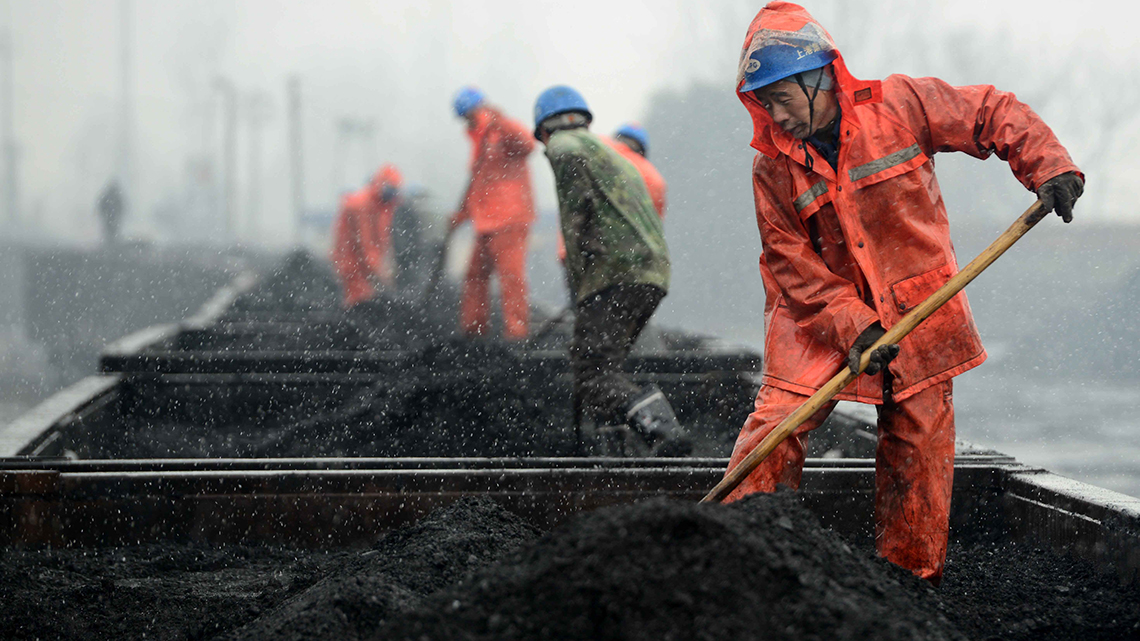All the slaps from China to Europe on coal and emissions

China says it is continuing its energy transition, but is acquiring huge amounts of new coal-fired capacity. Sergio Giraldo's analysis
China continues its energy transition and in 2022 issues permits for the construction of 106,000 megawatts of coal -fired electricity generation capacity, four times more than in 2021 and the maximum since 2015. Consistently, with respect to the plan to achieve zero emissions in 2060, Beijing will greatly expand its coal-fired and nuclear power capacity in the coming years. The mountain of coal-fired electric power that will start operating within this year will work for thirty or thirty-five years and will annually emit a quantity of CO2 equal to 1.2 times what Europe would cut by replacing all 270 million vehicles in circulation today with electric cars.
As highlighted several times in this newspaper, Brussels' disastrous energy policies aim to reduce the few emissions for which the continent is responsible (7% of the total) by imposing obligations, bans and disproportionate costs on the population. Meanwhile, China (which alone is responsible for more than 25% of global emissions) continues on its way, ignoring COP26 like all the previous ones.
THE IMPORTANCE OF COAL FOR CHINA
After all, the security of supply for Beijing is a priority, especially after the Chinese electricity system was in trouble in 2021 due to the increase in consumption and after the drought in 2022 greatly reduced the contribution of hydroelectric , forcing rationing in entire provinces. Already 50,000 MW is under construction, with more to follow by 2023, according to the Global Energy Monitor, an organization that analyzes world energy projects.
Coal is a raw material that China has in abundance, so the energy security deriving from the coal supply chain represents a strong point for Beijing. Admittedly, China added 125,000 MW of new renewable capacity last year, two-thirds of which from photovoltaics, with another 160,000 MW of wind and solar planned for 2023. But Beijing is well aware that renewables cannot provide continuous generation. and, above all, that every watt of renewable power must have a corresponding reserve. While the possibility of enormous batteries supplying this reserve is still reserved for a few projects in the world, and while nuclear power is under development, the Chinese do not want to take risks and are committed to covering the immediate need with the most simple available.
CHINA'S PLAN ON EMISSIONS
In 2021, at the United Nations, China has announced in the past that its emissions will grow at least until 2030, and then gradually decrease with the development of renewables and nuclear power, until reaching zero in 2060 . However, it is impossible to know by how much emissions will grow and what the actual development of the thermoelectric capacity replacement plan will be, bearing in mind that a dramatic increase in electricity consumption is expected.
It is possible that such a massive development of coal will create, in the not too distant future, deeply rooted local industries, with converging interests of provincial governments and producers, which in the future could be difficult for the Beijing government to dismantle. Thus, it could prolong the period in which coal is still in the game. In short, even the Chinese transition may not be as linear as the Party would like.
ENERGY TRANSITION WITH CHINESE CHARACTERISTICS
The fact that China is also engaging in the ecological transition means two things. The first is that Beijing will do it its own way, at its own pace, with its own methods and without transparency. The second is that Europe will pay dearly for everything related to the transition, both because it is China that holds three-quarters of the supply of the necessary materials, and because Chinese demand itself will compete with Western demand. In short, the empire of pragmatism is developing its transition, as opposed to the book of dreams that the Commission and the picturesque MEPs are writing in Brussels. Dreams more prohibitive than forbidden.
This is a machine translation from Italian language of a post published on Start Magazine at the URL https://www.startmag.it/energia/cina-transizione-energetica-emissioni-carbone/ on Sun, 05 Mar 2023 07:43:48 +0000.
